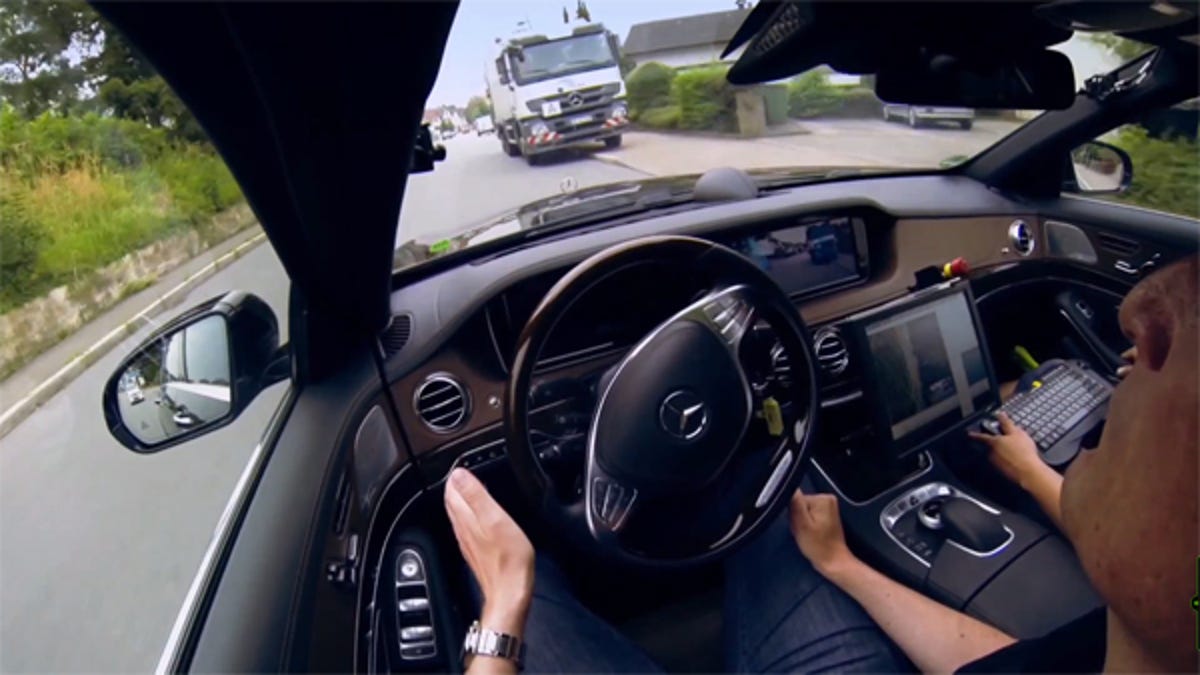Mercedes' autonomous car re-creates world's first long-distance drive
Mercedes-Benz has demonstrated its self-driving car by re-creating the 100-kilometre drive from Mannheim to Pforzheim undertaken by Bertha Benz 125 years ago.

Mercedes-Benz has demonstrated its self-driving car by re-creating the 100-kilometre drive from Mannheim to Pforzheim undertaken by Bertha Benz 125 years ago.
Perhaps roads populated by self-driving vehicles aren't so far away after all.
On 5 August 1888, Bertha Benz, wife of Mercedes-Benz founder Karl Benz, set out on a 100-kilometre drive in southern Germany, from Mannheim to Pforzheim, on the Benz Patent-Motorwagen Number 3 without telling her husband — the world's very first long-distance drive. In doing so, the luxury car manufacturer says, she demonstrated that the automobile was suitable for everyday use, pioneering its worldwide mainstream success.
What better way, then, to demonstrate the progress on the company's S 500 Intelligent Drive research car than by re-creating that selfsame journey?
A lot has changed since Bertha Benz took her three-wheeled vehicle to the road, though. In the 125 years since, the road has filled up with other cars, traffic lights, pedestrians, cyclists and trams — all of which provide a complex environment for an autonomous car.
Unlike the partial autonomous technology currently employed in Mercedes-Benz E-Class and S-Class vehicles, the S 500 Intelligent Drive is fully autonomous — that is, it requires no input from a human operator, allowing passengers to pursue non-driving-related activities.
"With our successful test drives following in the tracks of Bertha Benz, we have demonstrated that highly automated driving is possible without the luxury of specially closed-off sections of road and relatively straightforward traffic situations," said professor Thomas Weber, head of Mercedes-Benz Cars Development. "In line with the goal of the project, we have gained important insights into the direction in which we need to further develop our current systems in order to enable autonomous driving not just on motorways, but also in other traffic scenarios. Even we ourselves were quite surprised at just how far we got using our present-day sensor technology. But now we also know how much time and effort is needed to teach the vehicle how to react correctly in a host of traffic situations — because every part of the route was different."
The fully autonomous car isn't quite ready yet, but Mercedes-Benz will be introducing deeper levels of autonomy in its production-line vehicles in the next decade.
"Our autonomous systems offer to assist and unburden the driver. Those who want to drive themselves are free to do so, and that won't change in future either," Weber said. "It's clear, however, that autonomous driving will not come overnight but will be realised in stages. With this drive, we've now taken another important step into the future."

